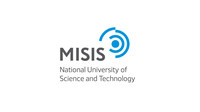MOSCOW, November 3, 2017 /PRNewswire/ --
A group of NUST MISIS scientists, in cooperation with researchers from both Ryazan State Agrotechnological University (named after P.A. Kostychev) and Derzhavin Tambov State University, have presented their research results of the application of a new generation of innovative fertilizers based on nanopowders of transition metals. Experiments on agricultural crops in the field have shown that the new agro-product's harvest is more than 25% that of current fertilizers.
(Logo: http://mma.prnewswire.com/media/484501/NUST_MISIS_Logo.jpg )
(Photo: http://mma.prnewswire.com/media/596700/NUST_MISiS_Plants.jpg )
Microelements such as iron, cobalt, copper, selenium, zinc, molybdenum, and other metals are an essential part of biologically active compounds (proteins, enzymes, hormones, vitamins, and pigments in plant and animal organisms). Various involuntary processes, including the way metabolism works, are impossible without them; this is despite the fact that only one or two atoms of these metals is required in protein or an enzyme molecule. As a key element of enzymes, microelements directly affect a plant's immunity and viability, which leads to its level of resistance to pests and diseases.
"We have developed a fertilizer of a new generation based on nanopowders of metals, which allows us to significantly optimize the technology of a number of agrochemical actions, and to be exact - to reduce them to a one seed treatment by a product containing the essential microelements in nanoform. Synthesized at NUST MISIS, these particles of transition metals (iron, copper, cobalt) have a powerful stimulating effect on plant growth in the initial growth phase. Thus, the future plant is provided with a supply of necessary microelements at the stage of seeding, which allows us to improve field germination, increase resistance to adversity, and, ultimately, to get a [better] harvest-as the experiments have shown these figures increase by 20-25%," said Alexander Gusev, a Ph.D. candidate in Biology, the head of the project, and a senior research associate at the NUST MISIS Department of Functional Nanosystems.
"The main difficulty was that due to their high activity, the nanoparticles tend to quickly stick together and form large aggregates. We have solved this problem using an integrated approach involving the use of organic stabilizers and the ultrasonic processing of colloidal solutions. Now, after receiving encouraging field research results, it is necessary to find out how a new fertilizer will act in different soils, in relation to different plant cultures, and it is also necessary to comprehensively assess its environmental safety before recommending it for widespread use." - He added.
In modern agriculture microelements are introduced into the soil in the form of soluble salts. The plant then receives the necessary substances only while the soil contains a solution. The substances are washed out by rains and watering and a new portion of fertilizer is required. During this phase it's possible for chemicals to enter the ground water, disrupting the ecosystem's balance. Fertilizers of this new generation make it possible for the necessary microelements to enter into a plant's structure without harming the soil.
The scientists predict a positive economic effect from the application of this new fertilizer. This is mainly because its consumption is about one gram of dry substance per a ton of processed seeds, and also because the number of procedures involved is reduced, which will decrease the costs of labor and operating agricultural equipment.
Source: http://en.misis.ru/university/news/science/2017-11/4987/


Share this article